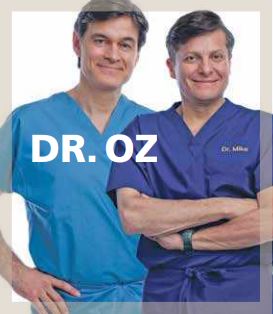
– 31 per cent of adults report that their mental health has deteriorated in the past year.
– Almost a third of parents of children younger than 18 have received help from a mental health professional.
– 47 per cent of moms who have had children at home for remote learning say their mental health has worsened.
– Nearly half of dads say they’re drinking more alcohol to cope with stress.
The American Psychological Association’s latest Stress in America poll reveals just how tough things have been for many folks lately. The effects of ampedup stress show up in everything from widespread wide spread (42 per cent of adults have gained weight this past year — averaging 29 pounds, and one in 10 has added 50 pounds) to increased domestic violence and erratic driving. In Ohio, for example, speeding citations for driving 100 mph or faster went up by 46 per cent in 2020. According to the National Highway Traffic Safety Administration, despite fewer miles driven, the number of people who died in traffic accidents during the lockdown months of January to September 2020 went up 4.6 per cent from the year before.
As stress increased, self-care has plummeted. Almost half of folks have delayed health care services and 53 per cent are less physically active than they want to be. And 67 per cent of Americans say they’re sleeping more or less than they want.
We don’t want to stress you out, but it’s pretty urgent that you identify your stressors and develop ways to manage your reactions. Weight gain, lack of physical activity, poor sleep, anger, depression and anxiety are destructive to your immediate and long-term health and longevity. Fortunately, you have the power to remold your stress response even in tough times.
Identifying your stress reaction. Stress reactions can happen in response to external and internal upset. Your work may be demanding more time with little respect for established office hours or the fact that you’re juggling other demands (like schooling kids). You may be struggling financially or socially. Or you may be fearful about the future. If you know that certain things in your life or your head are stressing you out:
– Write them down.
– Talk to friends and family about them. Ask for help sorting out the feelings.
– Make an appointment with a psychologist or psychiatrist, online or in person. On the other hand, you may not be able to identify what’s making you tense, but you sure know the symptoms. Your shoulders and neck ache, you snap at your kids and you’re gritting your teeth when you sleep. Identifying symptoms and getting therapy for them can ease uncomfortable stress reactions, such as headaches and muscle pain, and dispel your underlying stress response at the same time. Massage, acupuncture, a hot bath, meditating, deep breathing or yoga are smart moves. A study on taking a meditation break during the workday found employees gained 28 per cent increased vitality and had a 31 per cent drop in their stress level when they did it for eight weeks — and the benefits lasted a full year. Ommmm my!
SEVEN WAYS TO SHORT CIRCUIT STRESS.
1. Physical activity — especially non-competitive aerobic exercise, advises the Cleveland Clinic.
2. Interaction with and caring for others, even remotely.
3. Physical health care — attending to nagging health worries is liberating.
4. You-time — gardening, walking, reading, painting, singing, listening to or playing music, etc.
5. Upgrading lifestyle with improved nutrition, stopping smoking (it is stressful on every part of your body, including your brain) and adopting good sleep habits.
6. Talking with a mental health professional.
7. Sticking up for yourself! Gently, kindly, consistently — that’ll take pressure off you.
THE REWARDS.
Preventing and managing long-term stress can lower your risk for heart disease, obesity, high blood pressure and depression, according to the Office of Disease Prevention and Health Promotion. We say you’ll also gain happiness, hope and a younger RealAge. And we can’t stress that enough!
-Michael Roizen, M.D., and Mehmet Oz, M.D

Leave a Reply